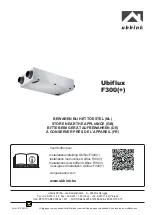
Functional characteristics
TIG welding
099-00T406-EW501
13.07.2017
17
4.1.4
Arc ignition
To change the ignition type, use parameter
to switch between HF start (
) and lift arc (
) in the
Expert menu
> see 4.1.10 chapter
.
4.1.4.1 HF ignition
Figure 4-4
The arc is started without contact from high-voltage ignition pulses.
a) Position the welding torch in welding position over the workpiece (distance between the electrode tip
and workpiece should be approx. 2-3mm).
b) Press the torch trigger (high voltage ignition pulses ignite the arc).
c) Ignition current flows, and the welding process is continued depending on the operating mode select-
ed.
End the welding process: Release or press the torch trigger depending on the operating mode
selected.
4.1.4.2 Liftarc
Figure 4-5
The arc is ignited on contact with the workpiece:
a) Carefully place the torch gas nozzle and tungsten electrode tip onto the workpiece and press the torch
trigger (liftarc current flowing, regardless of the main current set).
b) Incline the torch over the torch gas nozzle to produce a gap of approx. 2-3 mm between the electrode
tip and the workpiece. The arc ignites and the welding current is increased, depending on the operat-
ing mode set, to the ignition or main current set.
c) Lift off the torch and swivel to the normal position.
Ending the welding process: Release or press the torch trigger depending on the operating mode
selected.
4.1.4.3 Automatic cut-out
Once the fault periods have elapsed, the automatic cut-out stops the welding process when it has been
triggered by one of two states:
• During ignition
3 s after the start of the welding process, no welding current flows (ignition error).
• During welding
The arc is interrupted for more than 3 s (arc interruption).
















































